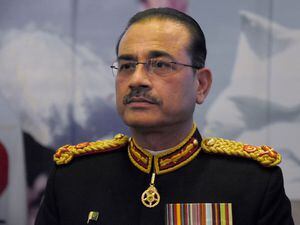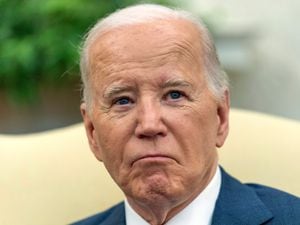Pakistan appoints ex-spy master General Munir as new army chief
Gen Munir begins his new role amid feuding between Mr Sharif and his predecessor, former prime minister Imran Khan.

Pakistani Prime Minister Shahbaz Sharif has named the country’s former spy chief as head of the military, the information minister said, ending months of speculation about the new appointment.
The army has historically wielded huge influence in Pakistan, ruling it for half of its 75-year history, and also oversees its nuclear programme.
Like neighbouring China and India, Pakistan has nuclear arsenals and a missile system, mainly aimed at arch-rival India.
Asim Munir, who was promoted to four-star general and whose planned retirement was postponed replaces General Qamar Javed Bajwa, whose extended six-year term ends on November 29.
Gen Munir begins his new role amid feuding between Mr Sharif and his predecessor, former prime minister Imran Khan.
The ex-premier has publicly accused Gen Bajwa of playing a role in his ouster, a charge the outgoing army chief has denied.
Mr Khan, a former cricket star turned Islamist politician, was ousted in a no-confidence vote in parliament in April.
He is now in the opposition and has been demanding early elections, claiming his ouster was illegal and orchestrated by Mr Sharif, with the US government’s help.
Mr Sharif and Washington have dismissed the allegations and the current government says the next polls will be held as scheduled in 2023.
According to Information Minister Maryam Aurangzeb, Mr Sharif also named Lt Gen Sahir Shamshad Mirza as the chairman of the Joint Chiefs of Staff Committee, replacing Gen Nadeem Raza who retires this week.
President Arif Alvi endorsed the appointments and congratulated Gen Munir and Gen Mirza on their promotions to four-star generals, according to a statement from the presidency.
Gen Munir ran the Inter-Services Intelligence during Mr Khan’s term in office but was fired without an explanation from the then-premier.





